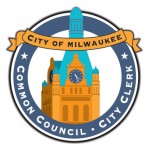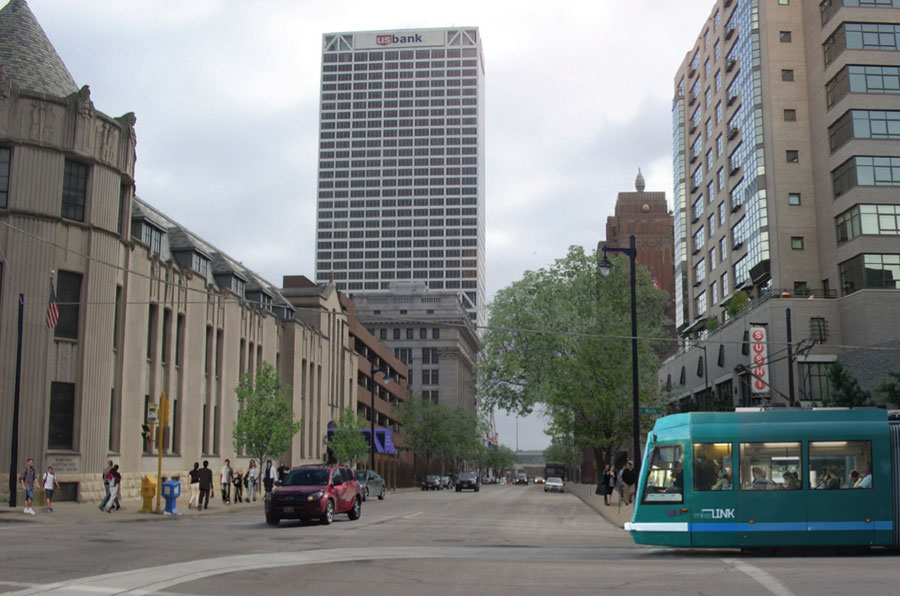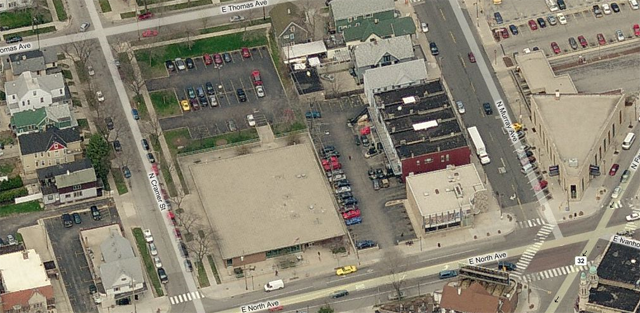Ashanti Hamilton was the director of the Office of Community Wellness and Safety, formerly the Office of Violence Prevention, from 2022-2025.
He was an alderman on the Milwaukee Common Council. He represented the city’s 1st District.
Content referencing Ashanti Hamilton - Page 8
Common Council approves Milwaukee Jobs Act initiative
The Common Council today approved creation of the Milwaukee Jobs Act -Transitional Jobs Program – a multifaceted effort to create employment opportunities for city young people and job seekers from areas of the city that have been particularly hard-hit economically.
Jul 24th, 2012 by Milwaukee Common CouncilFilm screening, event to mark Nelson Mandela Day
Alderman Ashanti Hamilton and Alderman Joe Davis, Sr. are co-hosting a documentary film screening and event Wednesday marking International Nelson Mandela Day, in honor of the Nobel Peace Prize winner and former president of South Africa.
Jul 17th, 2012 by Milwaukee Common CouncilChief Flynn should provide answers in public forum
Joint Statement from Alderwoman Milele A. Coggs, Alderman Ashanti Hamilton, and Alderman José G. Pérez
Jul 13th, 2012 by Milwaukee Common CouncilRocky Road
Some aldermen want to dump DCD head Rocky Marcoux, but Mayor Barrett disagrees.
Jun 26th, 2012 by Bruce MurphyWatching the Watchdog – Joint Statement from Members of the Common Council
The Milwaukee Journal Sentinel’s recent investigations into the police department have misled the public about important facts relevant to the safety of our community.
Jun 22nd, 2012 by Milwaukee Common CouncilAlderwoman Coggs seeks voter experience input in online survey; wants Council review of Election Commission practices
Alderwoman Milele A. Coggs is asking Milwaukee voters to provide input about their experiences at the polls during the June 5 recall election, and the information provided via the online survey could be made part of a Common Council review of Election Commission practices and procedures.
Jun 18th, 2012 by Ald. Milele CoggsHSI/WiRED Properties Proposal Picked for East Library
The Milwaukee Public Library Board of Trustee’s Building and Development Committee met at the East Library on Wednesday night to hear final proposals from the three respondents to the East Library Redevelopment RFP. Following a closed session for deliberations, the Building and Development Committee voted to move the proposal from HSI Properties forward to the full Library Board.
Nov 10th, 2011 by Jeramey JanneneMixed-Use East Library Proposals Meet the Neighbors
Wednesday night, Alderman Nik Kovac held a public meeting to allow feedback to be voiced regarding the three proposed alternatives for the redevelopment of the one-story East Library into a mixed-use facility. The meeting was a follow-up to a meeting last November discussing the potential of issuing a request-for-proposal (RFP) for the redevelopment of the East Library site. Attendees at the meeting were provided with an update on the process and allowed to ask questions about the process and proposals. The predictable East Side public meeting questions were aired, but which, if any, of the proposals will be selected?
Sep 15th, 2011 by Jeramey JanneneMilwaukee Moves Forward!
Council committee moves forward with the streetcar.
Jul 15th, 2011 by Dave ReidA Mixed-Use Library to Replace the East Library?
Alderman Nik Kovac, whose district includes the East Library on 1910 E. North Avenue, held a public meeting on November 11th to solicit feedback on the proposal of converting the one-story, single-use library into a mixed-use building.The meeting, which was held at the East Library meeting room, attracted a standing-room only crowd, and included representatives from the Library Board (of which Kovac is a member), the Department of City Development, and the Mayor's office
Nov 14th, 2010 by Jeramey JanneneVillard Square Receives Strong Support From City Plan Commission
Gorman & Company has been working with the Northwest Side Community Development Corporation to construct a mixed-use development on the 3400 block of W. Villard Ave. The four-story, 47-unit building will also include 12,000 square feet of space to house the Villard Avenue Library. The file before the City Plan Commission on Monday was an amendment to a previously approved Detailed Planned Development which specified the zoning and design of the proposed building.
Jul 14th, 2009 by Dave ReidM.O.R.E. – Common Council March 25th, 2009 Meeting Notes
The M.O.R.E ordinance was the most widely debated action taken at this Common Council meeting.
Mar 26th, 2009 by Dave ReidContentious M.O.R.E Debate Continues
The controversial M.O.R.E ordinance was the primary item of discussion at this meeting of the Common Council. This ordinance proposed new requirements related to hiring City of Milwaukee residents, the utilization of emerging small businesses, and the paying of prevailing wages for all City of Milwaukee projects and private developments that receive $1 million or more in TIF funding. It was widely believed that this ordinance was going to be put to a vote of the full Common Council today, which made Alderman Michael Murphy‘s motion to send this file to the Finance & Personnel Committee all that more contentious. Through the discussion it became evident that this file had originally been scheduled to appear the Finance & Personnel Committee but was removed at the last minute because of a legal technicality. Immediately prior to the Common Council meeting a fiscal note that indicated the ordinance would require a number of full-time employees to manage the new programs arrived which made the motion to send it back to committee both legal and appropriate. Although he indicated he would likely support the ordinance Alderman Murhpy argued that “basic issues, and basic questions are just not being addressed” and that “one needs to take the time to do it right.” At first the sponsors of the legislation were surprised and took the motion as a delaying tactic. They argued that the process had been fully transparent and didn’t require any further delay. Alderman Ashanti Hamilton stated that “I think the public has been engaged and involved in the creation of this ordinance.” During the discussion Alderman Nik Kovac piped in saying “I believe in process, I campaigned on process”, but he then indicated he didn’t believe sending it back to committee would change anything. In fact he said “the controversy today will be the same in 21 days.” Alderman Joe Davis fired away at the implication that not enough questions had been asked or that there wasn’t enough transparency to the process contending that “I made a point to schedule a special meeting to achieve transparency.” Initial supporters of the motion argued more questions needed to be asked and that it would be appropriate to send it back to the Finance & Personnel Committee. Specifically, Alderman Terry Witkowski supported the motion in an attempt to gather more information saying “I do support sending this back to committee, this was a constantly evolving piece of legislation.” In an attempt to bring a bit of levity to the debate Alderman Jim Bohl joked “I’m feeling a Rodney King moment, why can’t we just all get along here?” Then he defended Alderman Murphy’s motives and attempted to call the question. Oddly on this specific motion the ability to call the question isn’t an allowed so the debate continued. Alderman Murphy responded to the criticisms by stating “I do feel I was attacked unfairly” and he again attempted to clarify his position stating that “the fact is somebody, literally two minutes before the meeting handing you […]
Mar 4th, 2009 by Dave ReidM.O.R.E. Ordinance Approved by Committee
The Milwaukee Opportunities for Restoring Employment ordinance was the primary reason behind this special meeting of the Community & Economic Development Committee. The ordinance intends to increase the required percentage of City of Milwaukee residents hired to work on city projects and development projects receiving more than $1 million in TIF assistance. Additionally it mandated a prevailing wage to be paid for these projects and set a higher Emerging Business Enterprise (EBE ) utilization level as well. The proposed ordinance brought out a large group of both supporters and opponents. Alderman Ashanti Hamilton attempted to frame the discussion early on saying that “there are many people who may come to the table and say this is the wrong time to do something like this” and indicated that he felt the time was right to move on this ordinance. He added that “I submit to you that the price has already been too great”. Alderman Nik Kovac explained that “in the end this is not a philosophical question, it is a practical question” and lent his support saying that “I think we have a document that comes close to being a win win win”. An extensive list of developers and real estate professional spoke in opposition to the ordinance though primarily the development community opposed the ordinance because of the prevailing wage mandate. Richard Wanta, Executive Director of the Wisconsin Underground Contractors Association, spoke in opposition of the project saying that “the same city has chased us out of town for decades”. He went on to point out that there is currently only one major water and sewer contractor in the city, so once this passes that contractor is especially likely to get all of the available work in the area because of the new regulations. Dick Lincoln, Senior Vice President of the Mandel Group, started his remarks saying that “the camel is a horse that is designed by committee” indicating the ordinance wasn’t quite right but went on to say that “we’re almost there”. He explained that generally he felt the ordinance was a positive but that the prevailing wage requirement was problematic. He argued that it works against minority hiring, as smaller companies often compete on price, and that this would add substantially to the cost of the project. Barry Mandel, President of the Mandel Group, pointed to the PERC requirements in the Park East and tied them to the fact that development has been non-existent in the county owned portion of the Park East. He then pointed to The Brewery and The North End projects as two projects that have been moving forward because they utilizing non-prevailing wages. Greg Uhen, President of Eppstein Uhen Architects, spoke out against the proposed ordinance saying that “my concern is that it will reduce the number of opportunities that come to the city” and that he felt “this is another roadblock, another reason for them not to come”. The line of members in support of the ordinance were at least as lengthy […]
Mar 3rd, 2009 by Dave ReidMORE Hurdles Proposed for Development Projects within Milwaukee
In what appears to be a rush to significantly alter development efforts within the City of Milwaukee, Alderman Hamilton is proposing additional requirements for development projects that accept more than $1 million in Tax Incremental Financing.
Mar 1st, 2009 by Dave ReidDPW Defends Pothole Filling Process
The hot topic of this committee meeting was a recent Milwaukee Journal-Sentinel article accusing the Department of Public Works (“DPW“) of having a racial bias in their handling of pothole filling. Jeff Mantes and Jeff Polenske laid out DPW’s process in regards to pothole repair. Explaining that they prioritize arterial roads higher than neighborhood streets because these roads impact more drivers and have greater safety concerns because of higher speeds on these roads.Alderman Joe Davis, Sr. and Alderman Ashanti Hamilton were clearly bothered by this article’s findings and let DPW know it. Alderman Hamilton stated that “my constituents can pay taxes but can’t get their potholes fixed on time” and further made his discontent clear saying “you have lost the benefit of the doubt”. Ironically he also pointed out that many of his districts major arterial roads have recently been rebuilt. This was key because representatives from DPW had explained that their priorities were to repair potholes along major arterial roads first and go into the neighborhood streets later. It was evident that the research for the article didn’t take this into account and as new roads wouldn’t need pothole filling the primarily work in this district revolved around neighborhood streets which DPW had indicated were a lower priority.The committee as whole appeared to question the report’s validity and the mayor’s staff pointed out a variety of methodology flaws. These flaws including errors that could over count requests or place requests in the wrong census track, both of which could significantly sway the outcome of the research. These concerns prompted Alderman Robert Bauman to question the article and pointed out how irresponsible an article like this is, if based on poor methodology. Alderman Willie Wade joined in expressing his displeasure with the article’s methodology saying “personally I think we’ve been had” and that “we are here because of an article from the Journal Sentinel with bogus data”. Generally the committee was concerned if the findings were valid but Alderman Bob Donovon seemed to wrap up the sentiment by repeating an old cliche, “you cant always believe everything you read in the paper”.
Sep 4th, 2008 by Dave ReidProf. Levine Presents Bleak Job Market
Professor Marc Levine presented a a communication from the University of Wisconsin-Milwaukee Center for Economic Development regarding employment trends in the country’s cities. Professor Levine presented a fairly bleak view of Milwaukee’s job market and although he thought some of the efforts by the City of Milwaukee were positive he said they were “micro fixes because they’re not market changing”. He went on to say that “we need a bolder market changing strategy” if we hope to improve the job market here in the City of Milwaukee. Much like when he present his report regarding the jobless rate in the inner city he again pointed to a mass transit system, such as Denver’s $4.7 Billion 120 mile regional transit system, as a possible solution to jump start job growth and encourage business development in the future. Resolution 071451 proposed increasing the Emerging Business Enterprise (EBE) requirements from 18 percent to 25 percent for City of Milwaukee funded construction projects. The goal of EBE requirements is to help small business within the City of Milwaukee access opportunities they might not otherwise be afforded. In the past the City of Milwaukee has averaged 22.9 percent participation for construction projects so this new target represents a higher goal of achievement but one that is obtainable. Alderman Ashanti Hamilton made the motion to hold the resolution for one cycle to get “all the pieces” in the resolution that the committee felt were needed.
Feb 21st, 2008 by Dave ReidMcGee’s Folly
If you want to get a chuckle and a “no comment” out of a Milwaukee alderman these days, just tell him that Ald. Michael McGee, Jr. “certainly has a way with words.”
Feb 21st, 2005 by Michael HorneBroadband News – Thanks for Nothing
Access to the Wi-Fi zones requires a $19.95 per month membership in SBC DSL.
Nov 29th, 2004 by Michael HorneCrisses Averted
Barrett and Walker Announce Plan for Ballots in Milwaukee
Oct 11th, 2004 by Michael HorneHow Did Peggy Know?
Over Cocktails in 2001, then-A.G. Candidate Peg Lautenschlager Said Rival would be Indicted
May 3rd, 2004 by Michael Horne






















